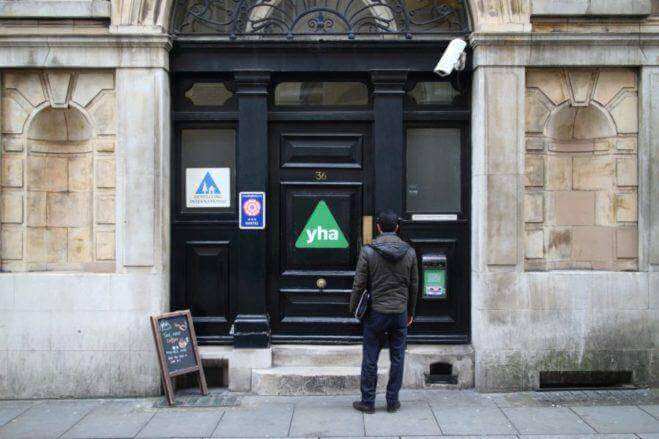
Let our criteria for booking short-term accommodations guide your next trip!
Where you choose to live will have a massive impact on the quality of experience you will have in each location. The following article focuses on strategies and tactics for booking short and long term stays for digital nomads. This article will present strategies based on the length of your stay and the style of your stay. I will later present the platforms I am using to book accommodation, and the preferences I have for each type of stay.
My list is built around personal priorities so it would be best to customize this article on your own priorities and style of travel.
Short-term Stays
If you are only arriving for a day or two, your accommodation strategy should probably change accordingly. Most of my short term stays are happening either on the weekend when I don’t work, or on weeks of vacation. That means that the focus of those stays is more on having fun and experiencing a location, than on work which I don’t do on the weekends.
Here are a few things I take into account when my stay is limited:
- How much of an hassle will it be to arrive to the place from the bus/train terminal?
- Considering that my time is limited in the location, is my accommodation well connected to the main attractions I want to see in the place I am staying?
- Is it a social place that allows interaction with other travelers or with the owner?
Most of those answers can be easily received by going over the reviews of the accommodation in whatever platform you are using to book the accommodation (more on that later), and by using google maps to see how well the location connects with the places you plan to visit.
In general, short term stays should not get you to an analysis paralysis state of spending much time deciding on the place. Even if you picked one that you don’t greatly enjoy, you will be only staying there for a night or two.
One week Stays
One week stays happen often, although I practice slow travel. Why?
- Sometimes I travel to a conference, or just change atmosphere with a week in a different place
- I usually don’t book a long term stay (one month +) without seeing it first and getting the vibes for both the town itself, and the accommodation
- In some locations that I stay over a month, I will start with a period of changing accommodation every week just for fun and getting to know more neighborhoods
As a digital nomad, I always start by booking my first accommodation in a new location for a maximum of one week. Emotional reactions and connections with a new location are impossible to predict; a one week trial period is an excellent way to analyze whether a location is a suitable fit or not. Spending the first seven days getting to know a new place allows me to experience the vibes and chemistry I develop with a city. In my own experience, I’ve visited Zagreb planning to stay for two days and ended up staying for three months. London, on the other hand, should have been a shorter stay, as it can be very difficult for digital nomads to budget for such a pricey city.
Other than making sure I connect with the city itself, another reason for booking short-term accommodations is to determine whether or not I connect with my initial accommodation. I try not to make virtual decisions regarding housing. Therefore, my one week trial period in a new location allows me the opportunity and proper amount of time to physically visit apartments or other accommodations and see if they are a good fit. We’ve all booked places online that turned out to be less than optimal and I don’t want to make any long-term agreements without fully knowing what I’m paying for. This goes for landlords or property owners as well. I prefer to meet them in person as opposed to making virtual decisions without an introduction.
Booking a short-term stay also allow for another fun way to get to know a new city: “hostel or Airbnb hopping.” New social landscapes can be exciting and different locations often have diverse neighborhoods that are all worth exploring. Booking brief stays at different hostels or Airbnb’s in multiple locations within a city will give you a much deeper understanding of your new, temporary home. Strategically hopping around cities can help you follow interesting cultural leads and learn more about a place than if you lived continuously in one specific section.
Booking Platforms
Let’s start with my preferred platforms for booking short-term accommodations:
Booking.com – If I opt for a less socially demanding option (Airbnb or couchsurfing), this is my default.
HostelWorld.com – Typically a backpacker’s default, it offers a great variety of dorm options. Although, Booking.com is also beginning to offer an increasing number of dorm options.
HotelsCombined.com – Another wide-ranging source for excellent deals across the globe.
Agoda.com – I’ve found Agoda to be particularly useful when traveling Asia.
If you are interested in a less commercial stay, here are two options that allow you to stay with locals:
Airbnb.com – Rent rooms/apartments from locals.
Couchsurfing.com – An amazing way to find a place to stay for free. Potentially better for those focusing on more traveling and less working, since you may be expected to share quality time with your host.
Short term accommodation hunting should not take too much time. You don’t want to spend hours peeling through a mind-numbing number of results only to feel overwhelmed about your trip. Remember, this is a short-term decision for a short-term stay. If you’re booking a place for less than a week, let go, make your decision and move on.
General Considerations
Accommodation costs are often the largest expense item for travelers. To avoid spending most of your budget on a place to sleep, adjust your standards accordingly. It’s always important to be safe, however, avoiding overly indulgent accommodations can help you save major amounts of money over the long term. Identify a budget for your short-term stay and avoid potentially superfluous costs that may not be important for you (i.e. breakfast buffets, television, daily cleaning). Instead, search for a comfortable, safe place to spend the night. By making price your first qualifier you avoid having to search through countless places that fall outside of your budget.
The internet is an excellent aid when gauging the quality of accommodation options. The intelligence of the masses helps travelers avoid scams and generally poor experiences. I take advantage of my fellow nomads’ knowledge and automatically filter out options with below average reviews. Similarly, I avoid options with few or no reviews because I have no idea what to expect. I would prefer a known poor option than an unknown and potentially unfortunate surprise. Searching for recent reviews is also important. If a hostel has no recent reviews it may be an indication that it has gone out of business. Generally, it is better to know this beforehand, or else you, like me, could end up in a small town on the Ukranian coast without a place to stay!
Skimming through reviews for red flags such as noise, cleanliness, or scams can help you avoid uncomfortable situations. Likewise, searching for particular characteristics you find appealing can also help you slim down your options.
Personal Priority One: Community
Being surrounded by the right community of people is important for me. I actively search through reviews and pictures to learn more about the social vibe of a particular accommodation because I value interacting with people, whether they are my hosts, local residents or fellow travelers. Many of these social interactions tend to occur in common spaces that foster connection and conversation. Different types of common spaces can include game rooms, dining facilities, reading areas, even coworking spaces. If I can find a variety of photos displaying a neat common space, this is a big plus for me. Likewise, I appreciate if a place has a mix of dorm rooms and single rooms. Dorm rooms hint at a high level of traffic and opportunities to socialize, while single rooms allow me to avoid noisy roommates while still enjoying the social benefits of other travelers when I’m up for it.
Personal Priority Two: Location
I’m not a huge fan of big cities, therefore, location is also a very important priority for me. Towering skyscrapers and honking cars don’t excite me as much as areas with more natural beauty. Typically, I try to find a balance and look for hostels or Airbnb’s that are in quiet residential areas with a local vibe. I much prefer being within walking distance of the city center, as opposed to living in the city center itself. With this in mind, for short-term stays, I do try to get to know a new city by looking hard for accommodation options in quiet residential areas. After developing more long-term plans I begin to search outside of the city for more natural options such as farms or communities with a connection to nature.
I love to start off my days with a minimum 30-minute walk each morning. This daily ritual is very important to me and I prefer to walk alongside mountains, rivers, or by the beach instead of weaving through traffic like I’ve had to do in Chiang Mai. That means, my accommodation should be quite close to a potential walking route, and away from cars and main roads. Google Maps can be very helpful in this regard, as it allows you to check your proximity to green parks and rivers. In addition to my proximity to nature, I also check my proximity to potential coworking spaces before booking. If you’re working, you want your commute to be as painless as possible. I search for options that are easily accessible by public transportation or by walking.
Key Takeaways
Here are six key steps to finding the right short-term accommodation options for you:
The Filter Phase
Set your maximum price and then sort your results by price, starting with the cheapest option.
Ignore all options without recent reviews. Ignore all options with no or few reviews. Then, use the average review score as a baseline (8+ on Booking.com and 4+ stars on Airbnb).
Once you’ve filtered your options, now you can move on to the picking phase.
The Picking Phase
Read reviews about a place and identify what past guests have found excellent and not so excellent. For example, a hostel may have a great social scene but poor internet. Identify how these key points fit your criteria.
Community settings are important to me and this question sums it all up. When I leave my room in the morning and return in the evening, what are the chances I will start a conversation with someone? If they are low, I avoid selecting that option.
Use the satellite view on a map platform to check the hostel or Airbnb’s proximity to main roads (noise), nature (key for a nice morning walk), and coworking options (ease of commute).
Book the best option until Friday and plan your next steps. I enjoy traveling outside of the city on the weekends. Checking out on Friday pushes me to explore new places!
One more option which exists and should be noted on short term accommodation will be to arrive to the city without any booking, and just wonder around and ask for options and prices. Some places are not listed on the accommodation directories, or will offer you discount since they save on the commission to the directory and can actually bargain with you face to face. I enjoy doing that from time to time, and received some nice discounts. However, I only do it on the weekends, when I have plenty of time to explore, and no rush to reach results.
Your Turn
I hope my criteria for identifying short-term stay options help you craft wonderful travel experiences in the near future. Please use my template as an example and create your own methods for picking short-term stay options. By doing so, you will greatly increase your chances of meeting exciting people and enjoying your nomadic lifestyle. We’re all bound to occasionally stay somewhere we don’t particularly enjoy. Following these guidelines and creating your own are excellent steps to maximize your enjoyment and lower your chances of a disappointing stay. If you do have a negative experience, just remember, it is only temporary and may be a great story one day!



Decision fatigue is a pitfall and you explain clearly how to minimize it, like sometimes only using one website, and spending a trial week in a city first. Great ideas! Thanks!
thank you Martha 🙂
Lots of great tips for booking, some of them I ude myself. I have a different “setup” though as I normally only book 1-2 nights to begin with, to see if the place lives up to my wishes 🙂 great post!
thanks Niclas. It is a good strategy as well.. My reason of booking until the weekend is to make sure i dont have to switch locations in the middle of the week, whihc will take out a few good hours of work 🙂
Hi. Thanks for sharing. This is informative blog. Are you planning to trip with family? Choose top airlines flight ticket by The Last Minute Flights. They provide cheap flights tickets on flights to Dalaman. Feel free and visit our website or give us a call our toll free number.